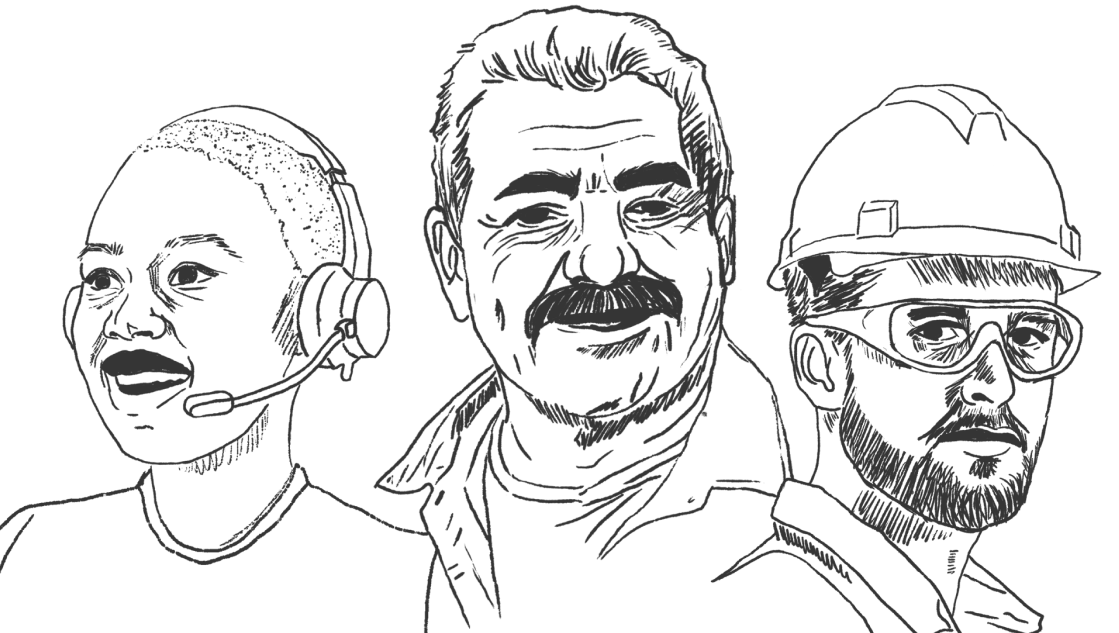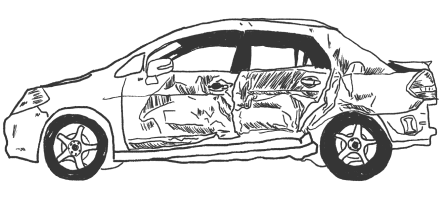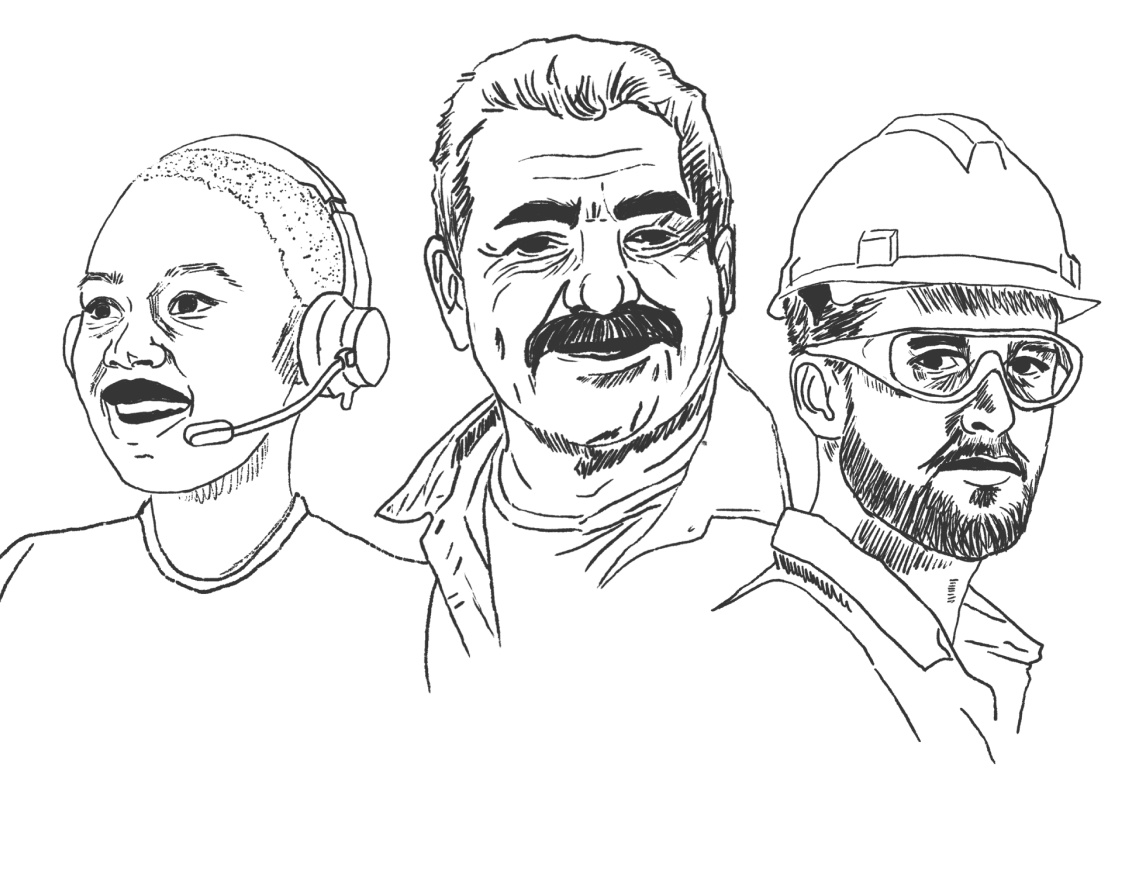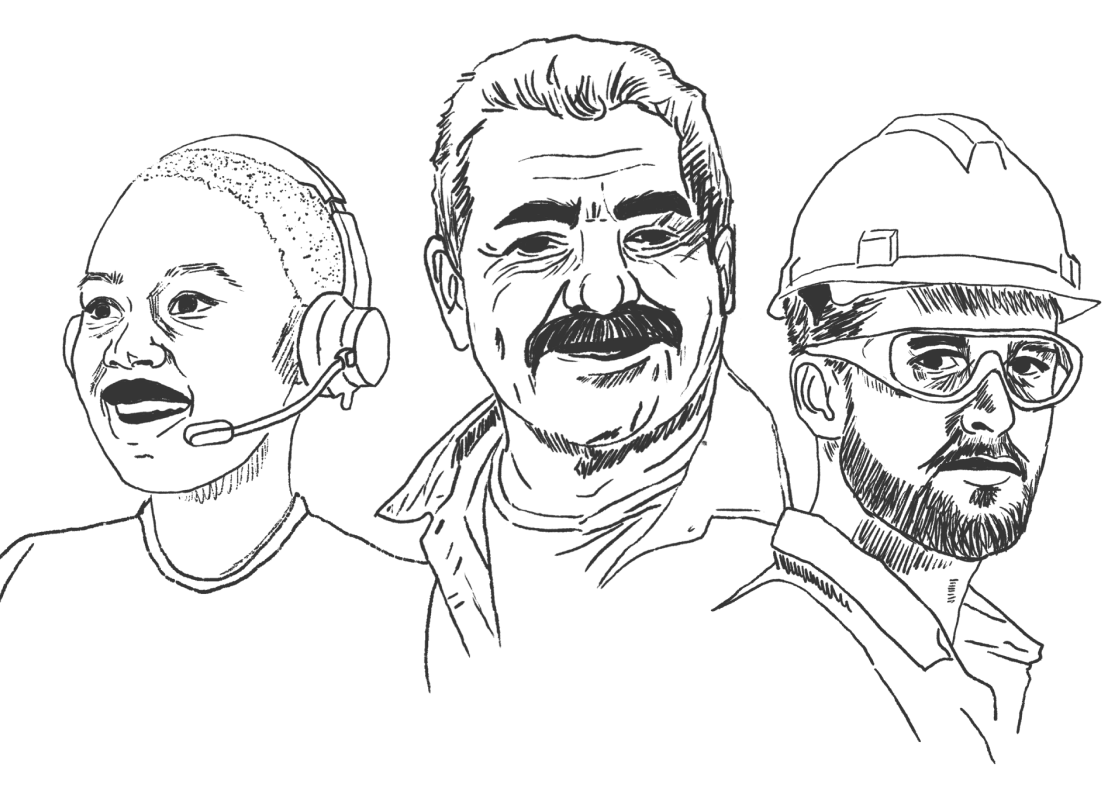

CAR ACCIDENTS
In today's fast-paced world, car accidents are a common occurrence. They can result in severe physical, emotional, and financial hardships for those involved. At A2X LAW, we understand the challenges that follow a car wreck and are committed to providing expert legal support to help you navigate the complexities of personal injury cases.
UNDERSTANDING CAR ACCIDENTS
Car wrecks can happen suddenly and without warning, often leaving a trail of physical, emotional, and financial challenges in their wake. To effectively navigate the aftermath of a car accident, it's crucial to have a comprehensive understanding of the different aspects involved. In this section, we will delve into the various types of auto accidents, their common causes, and the importance of staying informed about the risks on the road. Whether you've been directly affected by an accident or want to be better prepared, knowledge is your best ally.
CAR ACCIDENT DO'S AND DONT'S
After a car accident, knowing what to do and what not to do is crucial for your safety and protection. Here are some important steps to follow.
Do:
- Ensure safety: Move your vehicle to a safe location if possible and turn on hazard lights.
- Check for injuries: Assess your own and any passengers' injuries and seek medical attention if necessary.
- Call the authorities: Dial emergency services to report the accident and request police assistance.
- Exchange information: Share contact and insurance details with the other driver(s) involved.
- Document the scene: Take photos of the accident, including vehicle damage, license plates, and the surrounding area.
- Gather witness information: Obtain contact details from any witnesses at the scene.
- File a police report: Cooperate with law enforcement and provide an accurate account of the accident.
- Notify your insurance company: Inform your insurance provider about the accident as soon as possible.
- Seek medical evaluation: Even if you feel fine initially, see a healthcare professional for a thorough check-up.
- Preserve evidence: Keep records of medical bills, repair estimates, and communication with insurance companies.
Don't:
- Admit fault: Avoid discussing blame or accepting responsibility for the accident with other parties.
- Leave the scene: Stay at the accident scene until the authorities give you permission to leave.
- Neglect to call the police: Regardless of the accident's severity, it's important to have a police report.
- Engage in arguments: Stay calm and avoid confrontations with other drivers, even if they are at fault.
- Delay medical attention: Seek medical care promptly, as some injuries may not be immediately evident.
- Skip documentation: Maintain records of all accident-related information, such as bills and communications.
- Discuss the case on social media: Avoid sharing details about the accident or your injuries online.
- Settle without legal advice: Consult an attorney before accepting any settlement offers from insurance companies.
- Ignore legal deadlines: Be aware of the statute of limitations for filing a personal injury claim in your jurisdiction.
- Forgo legal counsel: Consider consulting with a qualified attorney if you have questions or concerns about your case.
POTENTIAL INJURIES THAT RESULT FROM AN CAR ACCIDENT
In the aftermath of a car accident, various injuries can occur, ranging from minor cuts and bruises to more serious conditions. Understanding these potential injuries is essential for seeking prompt medical care and legal assistance.
- Whiplash: Neck injury due to sudden acceleration or deceleration.
- Head Injuries: Including concussions, contusions, and traumatic brain injuries.
- Broken Bones: Fractures to limbs, ribs, or the skull.
- Soft Tissue Injuries: Such as sprains, strains, and bruises.
- Back Injuries: Herniated discs, spinal cord injuries, or muscle damage.
- Internal Injuries: Damage to organs, such as the liver, spleen, or kidneys.
- Burns: Resulting from fires or contact with hot surfaces.
- Cuts and Lacerations: From broken glass or sharp objects.
- Psychological Injuries: Such as post-traumatic stress disorder (PTSD) or emotional trauma.
- Seat Belt Injuries: Bruising or damage to the chest and abdomen.
- Airbag Injuries: Burns or abrasions from the deployment of airbags.
- Knee and Leg Injuries: Fractures, dislocations, or ligament damage.
- Nerve Injuries: Resulting in pain, numbness, or tingling sensations.
- Crush Injuries: When body parts are compressed or trapped.
- Fatal Injuries: Tragically, car accidents can lead to fatalities.
Understanding the statute of limitations is crucial when it comes to pursuing legal action after a car accident. The time limit for filing a claim can vary based on your jurisdiction and the nature of your case. Typically, individuals have a limited window of time to initiate legal proceedings, which can range from one to several years. It's important to consult with an experienced attorney to determine the specific statute of limitations that applies to your situation. Missing this deadline can jeopardize your ability to seek compensation for your injuries and damages. Therefore, it's vital to act promptly and seek legal guidance to ensure you meet all necessary legal requirements.
REASONS YOU MIGHT NEED A PERSONAL INJURY LAWSUIT AFTER A CAR ACCIDENT:
- Severe Injuries: If you or your loved ones have suffered severe injuries such as broken bones, spinal cord injuries, traumatic brain injuries, or permanent disabilities as a result of the accident, a personal injury lawsuit may be necessary to seek compensation for medical expenses and future care.
- Lost Wages: Car wrecks can lead to time away from work due to injuries or medical treatments. If your income has been affected, a lawsuit can help recover lost wages and potential future earnings.
- Pain and Suffering: The physical and emotional pain following a car accident can be overwhelming. A personal injury lawsuit can help you seek compensation for pain and suffering, including emotional distress and mental anguish.
- Medical Bills: Car accidents often result in substantial medical bills, including expensive emergency care, surgeries, physical therapy, and ongoing treatment. Pursuing a lawsuit can help cover these expenses.
- Wrongful Death: In tragic cases where a car accident results in a fatality, surviving family members may file a wrongful death lawsuit to seek justice and compensation for their loss.
- Work-Related Incidents: If the car accident occurred during the course of your employment or while you were driving for work-related purposes, you may be eligible for workers' compensation benefits or may have a personal injury case against a third party responsible for the accident.
CONTACT AN EXPERIENCED CAR WRECK ATTORNEY
Our dedicated team of attorneys specialize in personal injury cases, including those resulting from car accidents. We are here to fight for your rights and ensure you receive the compensation you deserve. From gathering evidence and negotiating with insurance companies to representing you in court, our expertise ensures that your case is in capable hands.
At A2X LAW, we believe that everyone deserves justice and fair compensation when they've been injured in a car accident. We're dedicated to helping you through this challenging time, providing the legal
support you need to get your life back on track. If you or a loved one has been a victim of a wreck, don't hesitate to contact us. Your road to recovery starts here.

CAR ACCIDENTS
In today's fast-paced world, car accidents are a common occurrence. They can result in severe physical, emotional, and financial hardships for those involved. At A2X LAW, we understand the challenges that follow a car wreck and are committed to providing expert legal support to help you navigate the complexities of personal injury cases.
UNDERSTANDING CAR ACCIDENTS
Car wrecks can happen suddenly and without warning, often leaving a trail of physical, emotional, and financial challenges in their wake. To effectively navigate the aftermath of a car accident, it's crucial to have a comprehensive understanding of the different aspects involved. In this section, we will delve into the various types of auto accidents, their common causes, and the importance of staying informed about the risks on the road. Whether you've been directly affected by an accident or want to be better prepared, knowledge is your best ally.
CAR ACCIDENT DO'S AND DONT'S
After a car accident, knowing what to do and what not to do is crucial for your safety and protection. Here are some important steps to follow.
Do:
- Ensure safety: Move your vehicle to a safe location if possible and turn on hazard lights.
- Check for injuries: Assess your own and any passengers' injuries and seek medical attention if necessary.
- Call the authorities: Dial emergency services to report the accident and request police assistance.
- Exchange information: Share contact and insurance details with the other driver(s) involved.
- Document the scene: Take photos of the accident, including vehicle damage, license plates, and the surrounding area.
- Gather witness information: Obtain contact details from any witnesses at the scene.
- File a police report: Cooperate with law enforcement and provide an accurate account of the accident.
- Notify your insurance company: Inform your insurance provider about the accident as soon as possible.
- Seek medical evaluation: Even if you feel fine initially, see a healthcare professional for a thorough check-up.
- Preserve evidence: Keep records of medical bills, repair estimates, and communication with insurance companies.
Don't:
- Admit fault: Avoid discussing blame or accepting responsibility for the accident with other parties.
- Leave the scene: Stay at the accident scene until the authorities give you permission to leave.
- Neglect to call the police: Regardless of the accident's severity, it's important to have a police report.
- Engage in arguments: Stay calm and avoid confrontations with other drivers, even if they are at fault.
- Delay medical attention: Seek medical care promptly, as some injuries may not be immediately evident.
- Skip documentation: Maintain records of all accident-related information, such as bills and communications.
- Discuss the case on social media: Avoid sharing details about the accident or your injuries online.
- Settle without legal advice: Consult an attorney before accepting any settlement offers from insurance companies.
- Ignore legal deadlines: Be aware of the statute of limitations for filing a personal injury claim in your jurisdiction.
- Forgo legal counsel: Consider consulting with a qualified attorney if you have questions or concerns about your case.
POTENTIAL INJURIES THAT RESULT FROM AN CAR ACCIDENT
In the aftermath of a car accident, various injuries can occur, ranging from minor cuts and bruises to more serious conditions. Understanding these potential injuries is essential for seeking prompt medical care and legal assistance.
- Whiplash: Neck injury due to sudden acceleration or deceleration.
- Head Injuries: Including concussions, contusions, and traumatic brain injuries.
- Broken Bones: Fractures to limbs, ribs, or the skull.
- Soft Tissue Injuries: Such as sprains, strains, and bruises.
- Back Injuries: Herniated discs, spinal cord injuries, or muscle damage.
- Internal Injuries: Damage to organs, such as the liver, spleen, or kidneys.
- Burns: Resulting from fires or contact with hot surfaces.
- Cuts and Lacerations: From broken glass or sharp objects.
- Psychological Injuries: Such as post-traumatic stress disorder (PTSD) or emotional trauma.
- Seat Belt Injuries: Bruising or damage to the chest and abdomen.
- Airbag Injuries: Burns or abrasions from the deployment of airbags.
- Knee and Leg Injuries: Fractures, dislocations, or ligament damage.
- Nerve Injuries: Resulting in pain, numbness, or tingling sensations.
- Crush Injuries: When body parts are compressed or trapped.
- Fatal Injuries: Tragically, car accidents can lead to fatalities.
Understanding the statute of limitations is crucial when it comes to pursuing legal action after a car accident. The time limit for filing a claim can vary based on your jurisdiction and the nature of your case. Typically, individuals have a limited window of time to initiate legal proceedings, which can range from one to several years. It's important to consult with an experienced attorney to determine the specific statute of limitations that applies to your situation. Missing this deadline can jeopardize your ability to seek compensation for your injuries and damages. Therefore, it's vital to act promptly and seek legal guidance to ensure you meet all necessary legal requirements.
REASONS YOU MIGHT NEED A PERSONAL INJURY LAWSUIT AFTER A CAR ACCIDENT:
- Severe Injuries: If you or your loved ones have suffered severe injuries such as broken bones, spinal cord injuries, traumatic brain injuries, or permanent disabilities as a result of the accident, a personal injury lawsuit may be necessary to seek compensation for medical expenses and future care.
- Lost Wages: Car wrecks can lead to time away from work due to injuries or medical treatments. If your income has been affected, a lawsuit can help recover lost wages and potential future earnings.
- Pain and Suffering: The physical and emotional pain following a car accident can be overwhelming. A personal injury lawsuit can help you seek compensation for pain and suffering, including emotional distress and mental anguish.
- Medical Bills: Car accidents often result in substantial medical bills, including expensive emergency care, surgeries, physical therapy, and ongoing treatment. Pursuing a lawsuit can help cover these expenses.
- Wrongful Death: In tragic cases where a car accident results in a fatality, surviving family members may file a wrongful death lawsuit to seek justice and compensation for their loss.
- Work-Related Incidents: If the car accident occurred during the course of your employment or while you were driving for work-related purposes, you may be eligible for workers' compensation benefits or may have a personal injury case against a third party responsible for the accident.
CONTACT AN EXPERIENCED CAR WRECK ATTORNEY
Our dedicated team of attorneys specialize in personal injury cases, including those resulting from car accidents. We are here to fight for your rights and ensure you receive the compensation you deserve. From gathering evidence and negotiating with insurance companies to representing you in court, our expertise ensures that your case is in capable hands.
At A2X LAW, we believe that everyone deserves justice and fair compensation when they've been injured in a car accident. We're dedicated to helping you through this challenging time, providing the legal
support you need to get your life back on track. If you or a loved one has been a victim of a wreck, don't hesitate to contact us. Your road to recovery starts here.

HAVE A CASE?

"I RECOMMEND THEM 100%"
"Mr. Henry and his team are very responsible in their work. From the first day I called them for a consultation about a car accident, they answered all my questions. They scheduled my first appointment with the doctor and from there everything was very easy. Every time I had questions there were there to answer every question I had. I recommend them 100%, I am very happy with the results, they fought my case to the end."
-Mayra Gomez
MashIt
"ALWAYS VERY RESPONSIVE, INFORMATIVE & PROMPT"
Mr. Locke was fantastic! He immediately took action and went the extra mile to get a settlement for me. Always very responsive, informative and prompt. Did I mention that I live more than halfway across the US?!?! That didn't matter. Mr. Locke worked diligently with my case just as he would for someone located down the street. Thank you so much Mr. Locke! You and Courtney are amazing and I hope to meet you one day. I'll refer you to everyone I know!
-Jessica Heath
FabuFit
"GLADLY RECOMMEND THEM"
My wife and I were very pleased with the work done by this firm. They took care of all of the work and got us a fair result in a timely manner. Craig Henderson and Cindy Lindsey went above and beyond in professionalism and in results. I would gladly recommend them to a family member or a close friend needing assistance in an injury claim.
-Cold Brue
YesSuits
"ACQUIRED A SETTLEMENT & CLOSED THE CASE"
"This team focused on helping me & my family recover after a horrible car crash where a pickup ran a light at high speed. It was a lengthy process but sure enough they managed to acquire a settlement and close this case. Much appreciated."
-Omar Garza
Button
"THANK THEM FOR EVERYTHING"
I would love to take this moment and acknowledge the hard work of the Anderson Law Firm for the work they did for my daughters case, I would like to thank them for everything they have done for my family and for the closure they have given my family.
-Ashley Hoffmeyer
Button

"I RECOMMEND THEM 100%"
"Mr. Henry and his team are very responsible in their work. From the first day I called them for a consultation about a car accident, they answered all my questions. They scheduled my first appointment with the doctor and from there everything was very easy. Every time I had questions there were there to answer every question I had. I recommend them 100%, I am very happy with the results, they fought my case to the end."
-Mayra Gomez
MashIt
"ALWAYS VERY RESPONSIVE, INFORMATIVE & PROMPT"
Mr. Locke was fantastic! He immediately took action and went the extra mile to get a settlement for me. Always very responsive, informative and prompt. Did I mention that I live more than halfway across the US?!?! That didn't matter. Mr. Locke worked diligently with my case just as he would for someone located down the street. Thank you so much Mr. Locke! You and Courtney are amazing and I hope to meet you one day. I'll refer you to everyone I know!
-Jessica Heath
FabuFit
"GLADLY RECOMMEND THEM"
My wife and I were very pleased with the work done by this firm. They took care of all of the work and got us a fair result in a timely manner. Craig Henderson and Cindy Lindsey went above and beyond in professionalism and in results. I would gladly recommend them to a family member or a close friend needing assistance in an injury claim.
-Cold Brue
YesSuits
"ACQUIRED A SETTLEMENT & CLOSED THE CASE"
"This team focused on helping me & my family recover after a horrible car crash where a pickup ran a light at high speed. It was a lengthy process but sure enough they managed to acquire a settlement and close this case. Much appreciated."
-Omar Garza
Button
"THANK THEM FOR EVERYTHING"
I would love to take this moment and acknowledge the hard work of the Anderson Law Firm for the work they did for my daughters case, I would like to thank them for everything they have done for my family and for the closure they have given my family.
-Ashley Hoffmeyer
Button

NATIONWIDE SERVICE (361) 452-1279

NATIONWIDE SERVICE (361) 452-1279


